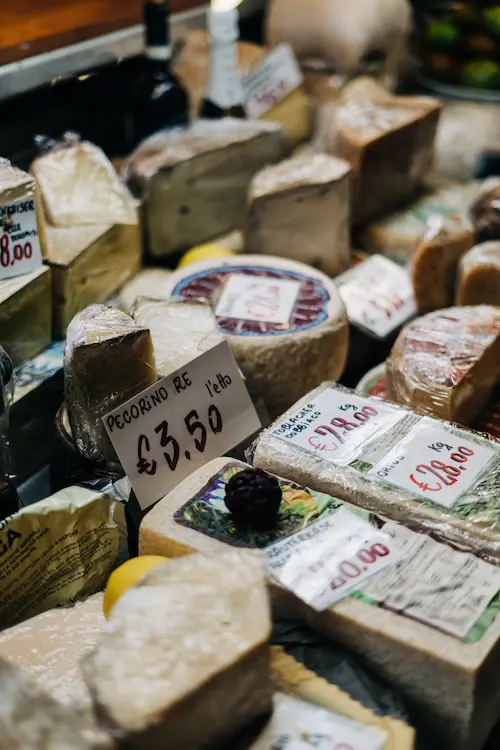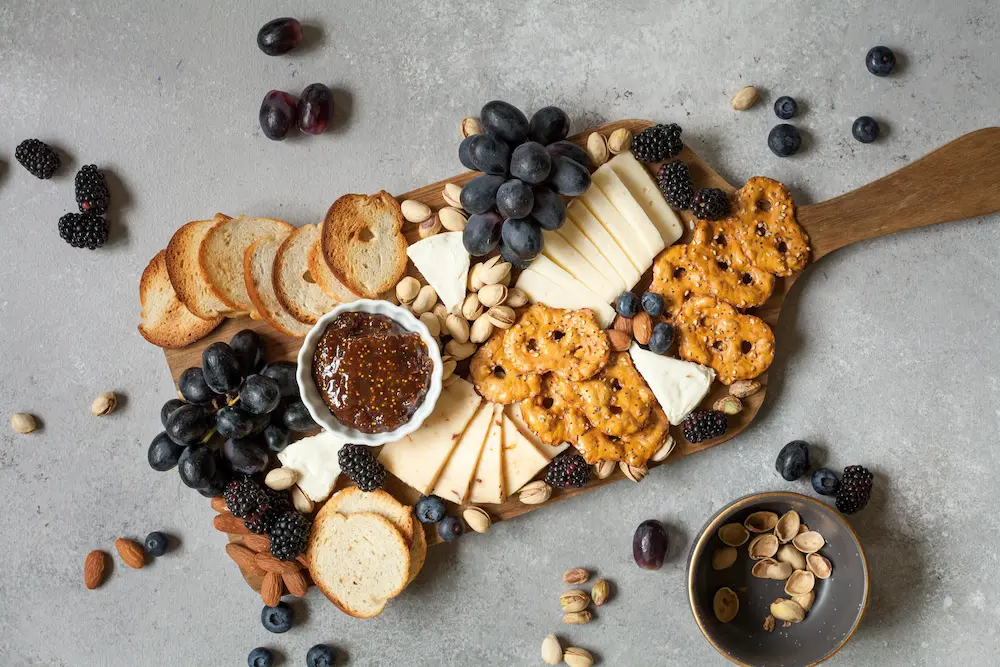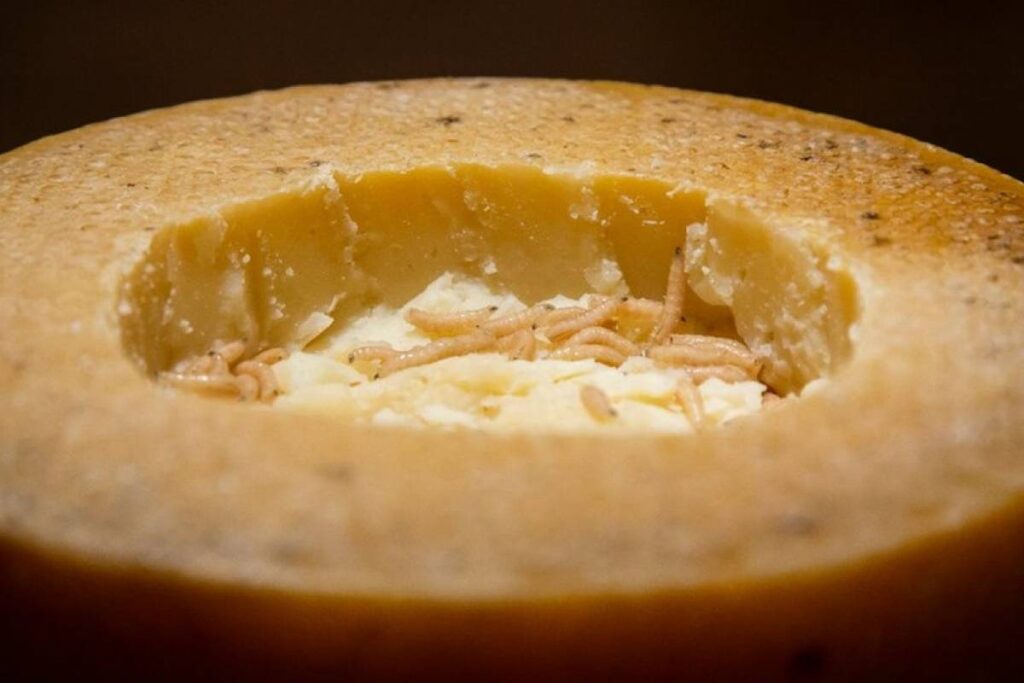Amongst the many culinary delights of the Italian peninsula, we cannot forget to mention Italian cheeses.
Italy is the cradle of an immense variety of cheeses: the last count put the number of Italian cheeses at a whopping 480.

50 shades of… Italian Cheese
Every region has its own traditional cheeses.
They differentiate in large part for the methods of production and for the milk used – cow’s, sheep’s or goat’s milk. Italian cheese-making tradition is centuries old and incredibly precious to our country.
For this reason, as well as because of their high quality, many Italian cheeses have been awarded the label of DOP products.
Traditional methods of cheese production
For those who might not know it, the DOP label has a similar function as the DOC and DOCG labels used for wines. It’s short for ‘Denominazione di Origine Protetta’ (protected designation of origin). It’s a way to ensure that all Italian cheeses – and other food, as well – bearing this label are locally produced – with locally grown ingredients – and packaged. It’s also a guarantee that these Italian cheeses are actually made by local farmers and artisans using traditional methods.
While we are very proud of all our cheeses, there are some that the rest of the world envies and that really make the difference in a dish.
Parmigiano, not Parmisan!

The most obvious, and maybe the most famous, is the Parmigiano Reggiano DOP (not to be confused with the ‘parmesan’ cheese that’s so common in other countries).
The history of Parmigiano Reggiano begins in the Middle Ages, when the Benedictine monks committed to the creation of a cheese that could be safely preserved for long periods. Today, after long centuries of production, the Parmigiano Reggiano has an ever-lasting bond with its territory and its region. The production of the milk, its processing into cheese, the ageing process and the packaging all take place exclusively between the provinces of Parma, Reggio Emilia, Modena and Bologna.
Parmigiano Reggiano is commonly grated on top of pasta.
Pecorino Cheese

Another well-known and internationally acclaimed Italian cheese is the Pecorino.
As its name implies, Pecorino’s produced with sheep’s milk (‘Pecora’ is the Italian word for sheep) and many Italian regions have their own traditional production of it. Almost everyone will recognize the Pecorino Romano, which is used in carbonara pasta (and no other cheese will do!). In Tuscany, we produce two kinds of Pecorino: Pecorino Toscano and Pecorino di Pienza.
Other famous cheeses – and a creepy one!

Other internationally famous Italian cheeses are Mozzarella, Mascarpone and Gorgonzola.
Fun fact: Sardinia produces a cheese nicknamed ‘cheese that moves’. Casu Marzu – that’s his real name – is one of the most refined Italian cheeses and it earned its peculiar moniker because it contains worms.
